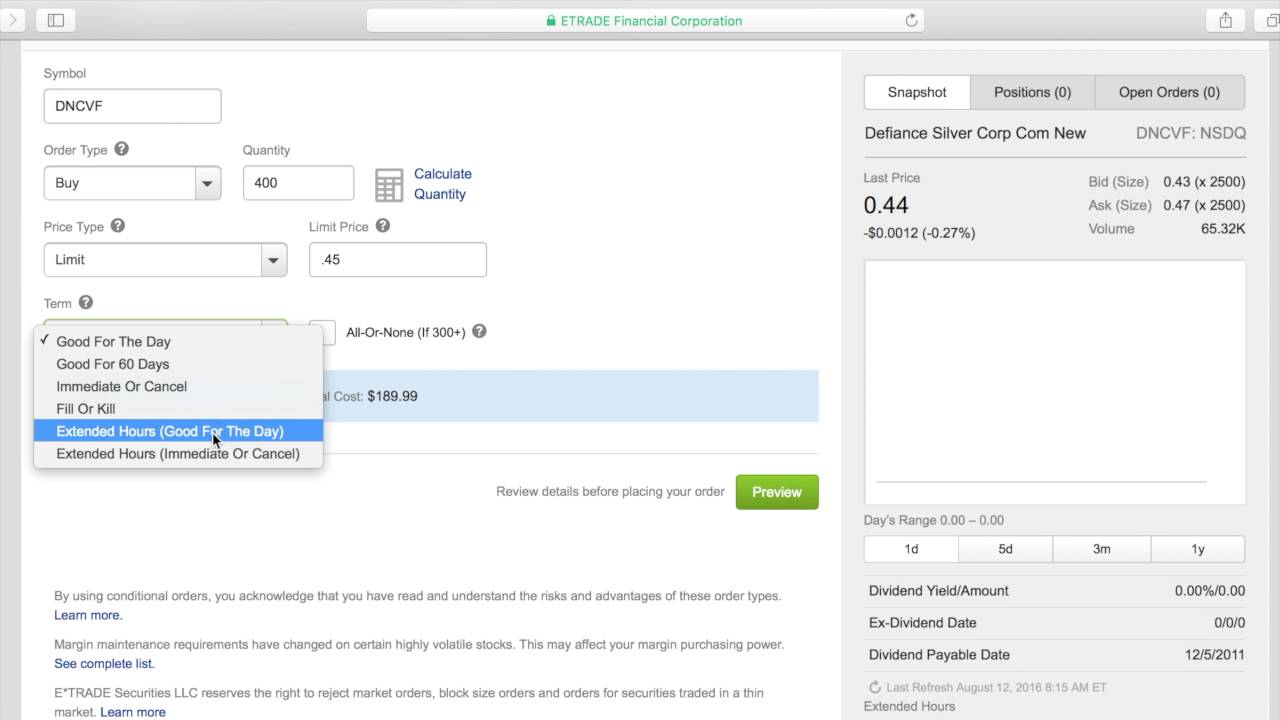

Finance
What A Cfo Does For Small Businesses
Published: November 25, 2023
Learn how a CFO can help small businesses manage their finances and make strategic financial decisions. Find out the key role of finance in growing your business.
(Many of the links in this article redirect to a specific reviewed product. Your purchase of these products through affiliate links helps to generate commission for LiveWell, at no extra cost. Learn more)
Table of Contents
Introduction
Welcome to the world of small businesses, where entrepreneurs strive to build and grow their ventures into successful enterprises. While small business owners are often involved in various aspects of their company’s operations, one crucial role that can significantly impact their success is that of a Chief Financial Officer (CFO).
A CFO plays a vital role in the financial management of a small business, providing strategic guidance and oversight of the company’s financial activities. They are responsible for ensuring that the business has a solid financial foundation, enabling it to make informed decisions, maximize profitability, and navigate potential risks.
In this article, we will explore the essential functions and responsibilities of a CFO in a small business. From financial planning and analysis to cash flow management and strategic decision-making, we will delve into the various aspects of their role and highlight the value they bring to the table.
Whether you are a small business owner seeking to understand the importance of a CFO or an aspiring finance professional looking to step into this vital role, this article will provide you with valuable insights into the world of CFOs in small businesses.
So, let’s dive in and discover what a CFO does to drive financial success and growth in small businesses.
Role of a CFO in Small Businesses
The role of a Chief Financial Officer (CFO) in a small business goes beyond bookkeeping and preparing financial statements. A CFO acts as a strategic partner to the business owner, providing financial insight and expertise that can drive the company’s growth and profitability.
Here are some key areas where a CFO plays a pivotal role in small businesses:
- Financial Planning and Analysis: A CFO is responsible for developing and implementing financial plans that align with the company’s goals and objectives. They analyze historical and current financial data, forecast future performance, and identify potential opportunities and risks. By providing accurate and timely financial analysis, a CFO helps the business owner make data-driven decisions for the company’s growth.
- Cash Flow Management: Cash flow is the lifeblood of any small business. A CFO closely monitors cash inflows and outflows, ensuring that the business has enough liquidity to meet its financial obligations. They develop strategies to optimize cash flow, such as managing receivables and payables, negotiating favorable terms with vendors, and implementing effective inventory management practices.
- Financial Reporting and Analysis: A CFO is responsible for preparing accurate and timely financial reports that provide a clear picture of the company’s financial performance. They ensure compliance with accounting standards and regulations, and communicate financial information to stakeholders, such as investors, lenders, and board members. Through financial analysis and interpretation, a CFO identifies trends, patterns, and areas for improvement to drive the company’s financial success.
- Risk Management: Small businesses face various risks, such as market volatility, changes in regulations, and unexpected events. A CFO assesses and manages these risks by implementing effective risk management strategies, such as insurance coverage, hedging strategies, and contingency planning. They help the business owner mitigate risks and protect the company’s financial assets.
- Budgeting and Forecasting: A CFO is involved in the budgeting process, helping to set financial goals and allocate resources effectively. They develop financial models and forecasts to evaluate the potential impact of business decisions on the company’s financial position. A CFO also monitors performance against budgeted targets, identifies variances, and recommends corrective actions when necessary.
A CFO plays a crucial role in securing the financial stability and growth of a small business. Their expertise and strategic insights help the business owner make informed decisions, improve financial performance, and drive long-term success. The next sections will explore additional responsibilities that a CFO fulfills in small businesses, including capital structure and funding, tax planning and compliance, and strategic decision-making.
Financial Planning and Analysis
In small businesses, effective financial planning and analysis are key to achieving long-term success. A CFO plays a critical role in this process, helping the business owner make informed decisions based on financial data and forecasts.
A CFO develops and implements financial plans that align with the company’s objectives and growth strategies. This involves analyzing historical and current financial data to identify trends, patterns, and areas for improvement. By conducting comprehensive financial analysis, a CFO can forecast future performance, estimate revenue and expenses, and develop actionable strategies to drive profitability.
Financial planning starts with setting financial goals and objectives. A CFO works closely with the business owner to understand their vision and identify measurable targets. They then develop financial models and projections to determine the resources needed to achieve these goals and the potential impact on the company’s financial position.
Once the financial goals and targets are established, a CFO monitors the company’s performance against these objectives. They track key performance indicators (KPIs), such as revenue growth, profit margins, and cash flow, and provide regular reports to the business owner. By analyzing these KPIs, a CFO identifies areas of improvement, highlights potential risks, and recommends appropriate actions to drive financial success.
Financial planning also involves budgeting. A CFO collaborates with various departments to develop a comprehensive budget that aligns with the company’s strategic initiatives. They ensure that the budget accurately reflects the company’s financial capabilities and resources, and allocate funds to different areas accordingly.
Furthermore, a CFO conducts sensitivity analysis and scenario planning to assess the impact of different business decisions on the company’s financial performance. This helps the business owner make informed choices and mitigate potential risks while seizing new opportunities.
In summary, financial planning and analysis are essential functions that enable small businesses to make informed decisions and achieve their financial goals. A CFO’s expertise in analyzing financial data, developing forecasts, and providing strategic insights ensures that the business owner has a clear understanding of the financial implications of their decisions, thereby positioning the company for long-term success.
Cash Flow Management
Cash flow management is a critical aspect of running a successful small business, and it is the CFO’s responsibility to ensure that the company maintains a healthy cash position. Effective cash flow management involves monitoring cash inflows and outflows, optimizing liquidity, and ensuring the business has enough funds to meet its financial obligations.
A CFO plays a key role in cash flow management by implementing strategies to maximize cash inflows. They work closely with the sales and accounts receivable teams to ensure timely collection of payments from customers. This may involve establishing clear credit policies, setting payment terms, and closely monitoring the aging of receivables to identify potential cash flow bottlenecks.
On the other hand, a CFO also needs to manage cash outflows. They work with the accounts payable team to negotiate favorable payment terms with suppliers and vendors. This may involve optimizing payment schedules to maintain a healthy balance between paying suppliers promptly and preserving cash reserves.
In addition to managing cash inflows and outflows, a CFO is responsible for forecasting future cash flows. By analyzing historical data and industry trends, they can estimate the timing and amount of future cash inflows and outflows. This helps the small business owner to plan for potential cash shortfalls and develop appropriate strategies to bridge the gap.
Cash flow forecasting also enables the CFO to identify opportunities for cash optimization. This may involve negotiating discounts with suppliers for early payments or exploring financing options to bridge temporary cash gaps. By proactively managing cash flow, the CFO helps the business owner avoid costly surprises and maintain financial stability.
A CFO also plays a crucial role in ensuring that the business has access to adequate funding. They assess the company’s capital needs and identify financing options such as bank loans, lines of credit, or equity investments. By working closely with banks and financial institutions, the CFO helps secure the necessary funding to support the company’s growth objectives.
Furthermore, a CFO analyzes and monitors key cash flow indicators such as operating cash flow, free cash flow, and cash conversion cycle. They use these metrics to evaluate the efficiency of the company’s cash management processes and identify areas for improvement.
In summary, cash flow management is essential for the financial stability and growth of a small business. A CFO’s expertise in monitoring cash flows, optimizing liquidity, and securing funding ensures that the business has the necessary resources to meet its financial obligations, seize growth opportunities, and navigate through challenging times.
Financial Reporting and Analysis
Accurate and timely financial reporting is crucial for small businesses to assess their financial performance and make informed decisions. The CFO plays a vital role in preparing and analyzing financial reports that provide a clear picture of the company’s financial health.
A CFO ensures that the financial statements, including the income statement, balance sheet, and cash flow statement, are prepared in compliance with accounting standards and regulations. They work closely with the accounting team to ensure that the financial records are accurate, complete, and reflect the true financial position of the company.
Financial reporting involves more than just producing financial statements. A CFO also conducts a detailed analysis of the financial data to gain insights into the company’s performance. They analyze key financial ratios, such as profitability ratios, liquidity ratios, and efficiency ratios, to identify trends, strengths, and areas for improvement.
By analyzing financial data, a CFO can identify cost-saving opportunities, revenue growth potential, and areas where the company may be underperforming. This analysis helps the business owner make informed decisions and take appropriate actions to improve the company’s financial performance.
In addition to preparing internal financial reports, a CFO also communicates financial information to external stakeholders, such as investors, lenders, and board members. They provide comprehensive financial analysis and insights to these stakeholders, helping them understand the financial health and prospects of the business.
A CFO also plays a critical role in financial transparency and compliance. They ensure that the company’s financial reporting processes are transparent, reliable, and comply with applicable accounting standards and regulations. This instills confidence in stakeholders and minimizes the risk of fraudulent activities.
Moreover, a CFO prepares financial forecasts and projections to assess the potential impact of various scenarios and decisions on the company’s financial performance. This helps the business owner understand the potential outcomes of their strategies and make informed choices to maximize profitability and growth.
In summary, financial reporting and analysis are essential for small businesses to assess their financial performance, make informed decisions, and communicate effectively with stakeholders. A CFO’s expertise in preparing accurate financial reports, conducting in-depth analysis, and providing strategic insights ensures that the business owner has a comprehensive understanding of the company’s financial position, enabling them to drive growth and success.
Risk Management
Risk management is a crucial aspect of running a small business, as it helps identify and mitigate potential threats that can impact the company’s financial stability and growth. A CFO plays a key role in risk management by assessing, monitoring, and implementing strategies to minimize risks.
A CFO conducts a comprehensive risk assessment to identify potential risks that may affect the business, such as market volatility, regulatory changes, or operational disruptions. They analyze the likelihood and potential impact of these risks and develop strategies to minimize their negative consequences.
One important aspect of risk management is implementing adequate insurance coverage. A CFO works with insurance providers to identify the appropriate insurance policies to protect the business from potential risks, such as property damage, liability claims, or business interruption.
In addition to insurance, a CFO helps the business owner develop risk mitigation strategies. This may involve diversifying the company’s customer base, suppliers, or markets to reduce dependence on a single source. They also evaluate and manage supplier relationships to ensure that the business is not heavily reliant on a single vendor or faced with significant supply chain risks.
A CFO also monitors and manages financial risks, such as interest rate fluctuations, foreign exchange exposure, or credit risk. They implement risk management strategies, such as hedging or establishing credit policies, to protect the business from potential financial losses.
Furthermore, a CFO plays a crucial role in business continuity planning. They develop contingency plans to ensure the business can continue operating smoothly in the event of unforeseen circumstances, such as natural disasters or economic downturns. This may involve developing alternative supply chains, establishing backup systems and processes, or securing additional sources of funding.
By closely monitoring and managing risks, a CFO helps the business owner proactively address potential challenges and protect the company’s financial assets. Their expertise in risk management enables the business to navigate uncertainties and position itself for long-term success.
In summary, risk management is an integral part of running a small business, and a CFO’s role is to identify, assess, and mitigate potential risks. By implementing strategies to manage various risks, a CFO ensures the business’s financial stability and minimizes the potential impact of unforeseen events, allowing the company to focus on achieving its goals and objectives.
Budgeting and Forecasting
Budgeting and forecasting play a critical role in the financial management of a small business, and the CFO is responsible for overseeing these crucial processes. Budgeting involves planning and allocating resources, while forecasting helps the business owner anticipate future financial performance. Together, budgeting and forecasting enable the business to set financial goals, allocate resources effectively, and make informed decisions.
A CFO collaborates with various departments and stakeholders to develop a comprehensive budget that aligns with the company’s strategic objectives. They analyze historical data, industry trends, and market conditions to estimate revenue and expense projections. By setting realistic financial targets, a CFO ensures that the business is adequately prepared to achieve its desired outcomes.
Once the budget is established, a CFO continuously monitors the company’s performance against the budgeted targets. This involves analyzing financial reports, identifying significant variances, and providing insights into the underlying causes. By closely tracking budgetary performance, a CFO helps the business owner identify areas of improvement, adjust resource allocations, and take corrective actions when necessary.
Forecasting is an essential component of financial planning and helps the business owner anticipate future financial performance. A CFO uses historical data, market trends, and industry analysis to develop forecasts of revenue, expenses, and cash flow. These forecasts not only provide a glimpse into the future financial health of the business but also help assess the impact of potential business decisions on the company’s financial position.
A CFO analyzes various scenarios and creates financial models to evaluate the potential outcomes of different strategies and scenarios. This enables the business owner to make informed decisions and evaluate the risks and rewards associated with each option. By leveraging forecasting techniques, a CFO helps the business owner proactively plan and respond to potential challenges and opportunities.
Budgeting and forecasting also play a crucial role in resource allocation. A CFO guides the business owner in determining the optimal allocation of financial resources to different departments and projects. They ensure that investments are aligned with the company’s strategic objectives and are likely to generate a positive return on investment.
In summary, budgeting and forecasting are essential for small businesses to achieve financial success and align with their strategic goals. A CFO’s expertise in budget development, performance monitoring, and financial forecasting ensure that the business has a clear roadmap for resource allocation, as well as a forward-looking perspective to optimize decision-making and achieve long-term financial success.
Capital Structure and Funding
Capital structure refers to how a company finances its operations, including the mix of debt and equity used to fund its activities. The CFO plays a key role in determining the optimal capital structure and securing the necessary funding for a small business.
A CFO analyzes the company’s financial needs and evaluates various financing options available, such as bank loans, lines of credit, equity investments, or alternative financing sources. They assess the advantages and disadvantages of each option and recommend the most suitable funding strategy for the business.
The CFO works closely with financial institutions and potential investors to secure the necessary capital. They prepare financial projections, business plans, and other relevant documents to demonstrate the company’s financial health and growth potential. By presenting a solid case to potential lenders or investors, the CFO helps to enhance the business’s chances of obtaining financing on favorable terms.
In addition to securing external funding, a CFO also manages the company’s internal financing sources, such as retained earnings or reinvesting profits. They assess the company’s cash flow situation and determine the appropriate amount to retain for future business needs and expansion.
Moreover, a CFO is responsible for optimizing the company’s capital structure. They evaluate the company’s debt-to-equity ratio, weighing the benefits of using debt financing, such as tax advantages and interest expense deductibility, against the risks associated with higher debt levels. By striking the right balance between debt and equity, the CFO helps maintain a solid financial foundation for the business.
The CFO also monitors the company’s capital structure and ensures compliance with financial covenants associated with debt financing, such as maintaining certain financial ratios or meeting specific performance targets. They provide ongoing analysis of the company’s financial position and recommend adjustments to the capital structure as needed.
Furthermore, a CFO participates in mergers and acquisitions (M&A) activities, where they provide financial analysis and due diligence to evaluate the financial implications of potential transactions. They assess the valuation, financing options, and risks associated with M&A deals, helping the business owner make informed decisions and negotiate favorable terms.
In summary, capital structure and funding are fundamental elements of a small business’s financial management. A CFO’s expertise in assessing financial needs, securing funding, and optimizing the capital structure ensures that the business has the necessary resources to support its growth and operational needs, enabling continued success in a competitive market.
Tax Planning and Compliance
Tax planning and compliance are critical aspects of a small business’s financial management, and the CFO plays a key role in ensuring that the company meets its tax obligations while optimizing its tax position.
A CFO works closely with tax professionals to develop effective tax strategies and minimize the business’s tax liabilities. They stay informed about the latest tax laws and regulations, identifying potential tax incentives, deductions, or credits that the business may be eligible for.
One crucial aspect of tax planning is understanding the business’s taxable income and identifying opportunities to reduce it legally. A CFO assesses the company’s income, expenses, and investments, and identifies legitimate tax deductions or exemptions. They may recommend strategies such as deferring income, accelerating expenses, or utilizing tax-efficient investment vehicles to optimize the business’s tax liability.
A CFO also ensures the business’s compliance with tax laws and regulations. They prepare and file timely and accurate tax returns, ensuring that all required information is included and any applicable taxes are paid by the due dates. They stay updated on changes in tax laws and regulations, ensuring that the business remains in compliance and avoids penalties or legal issues.
In addition to compliance, a CFO helps the business owner develop strategies to manage tax risks and avoid potential tax disputes or audits. They review the business’s tax positions, documentation, and procedures to ensure that they are robust and defensible if questioned by tax authorities. This proactive approach minimizes the risk of tax controversies and financial setbacks.
Furthermore, a CFO assesses the impact of international tax regulations if the business operates across borders. They ensure compliance with tax laws in different jurisdictions, manage transfer pricing issues, and leverage tax treaties or incentives to minimize the overall tax burden for the business.
The CFO also serves as a liaison between the business and tax authorities. They may engage in discussions, negotiations, or audits with tax authorities, ensuring that the business’s interests are protected and any tax disputes are resolved in a fair and efficient manner.
In summary, tax planning and compliance are essential for small businesses to manage their tax obligations effectively while maximizing tax savings within the confines of the law. A CFO’s expertise in tax planning strategies, compliance, and risk management ensures that the business remains in good standing with tax authorities and avoids unnecessary financial burdens, allowing it to focus on its core operations and achieve its financial objectives.
Strategic Decision-making
Strategic decision-making is a crucial aspect of running a successful small business, and the CFO plays a pivotal role in providing financial insights that inform and support these strategic decisions.
A CFO works closely with the business owner to evaluate and analyze potential strategic initiatives. They assess the financial implications of different options, considering factors such as costs, potential returns, and risks. By conducting in-depth financial analysis, a CFO provides the business owner with a clear understanding of the financial impact of their decisions.
Financial metrics such as return on investment (ROI), net present value (NPV), and payback period are key tools that a CFO utilizes to assess the financial viability of strategic initiatives. They help the business owner evaluate the potential benefits and risks associated with each option and make informed decisions that align with the company’s goals and objectives.
In addition to financial analysis, a CFO also considers broader market and industry trends that may impact the success of strategic decisions. They conduct market research, analyze customer behavior, and assess competitive forces to guide the business owner in making strategic choices that are likely to result in a competitive advantage.
A CFO also plays a crucial role in evaluating potential investment opportunities or business partnerships. They conduct due diligence, assess financial risks and returns, and provide recommendations to the business owner. This helps ensure that the company’s resources are deployed effectively and in alignment with its growth objectives.
Furthermore, a CFO’s expertise in financial forecasting and scenario analysis enables the business owner to assess the potential outcomes of different strategic decisions. By modeling various scenarios and their financial implications, a CFO helps the business owner identify potential risks, rewards, and strategies to navigate uncertainties.
The CFO also monitors the financial performance of strategic initiatives, tracking key performance indicators (KPIs) and providing regular updates to the business owner. This allows for adjustments and refinements to the strategy as needed, ensuring that strategic decisions remain aligned with the company’s financial goals.
In summary, strategic decision-making is critical for the long-term success and growth of a small business, and the CFO’s financial expertise and insights are instrumental in guiding these decisions. By providing financial analysis, evaluating potential investments, and monitoring performance, a CFO supports the business owner in making well-informed strategic choices that drive the company’s financial success.
Conclusion
The role of a CFO in a small business is multi-faceted and essential for financial success and growth. From financial planning and cash flow management to financial reporting and analysis, a CFO brings valuable expertise and insights that help drive the company’s financial performance.
By actively engaging in financial planning and analysis, a CFO provides the business owner with the information needed to make informed decisions and set achievable financial goals. Their expertise in budgeting and forecasting ensures that the business has a roadmap for resource allocation and a forward-looking perspective to optimize decision-making.
Furthermore, a CFO plays a critical role in managing cash flow by monitoring and optimizing liquidity. This helps the business maintain financial stability and meet its financial obligations.
Financial reporting and analysis are essential for assessing the company’s financial health and performance. A CFO prepares accurate and timely financial reports, providing insights that help the business owner understand key financial indicators and make informed decisions.
Additionally, risk management is a crucial responsibility of a CFO, who identifies and mitigates potential risks that can impact the business. By implementing risk management strategies, a CFO protects the company’s financial assets and helps navigate uncertainties.
The CFO also plays a vital part in managing the company’s capital structure and securing funding. Their expertise in capital structure optimization ensures that the business has a balanced financing mix and access to the necessary funds for growth and operational needs.
Tax planning and compliance are also critical areas where a CFO provides guidance, ensuring the business meets its tax obligations while optimizing its tax position.
Lastly, the CFO’s role in strategic decision-making is indispensable. Their financial insights and analysis help the business owner make informed choices and evaluate potential investments or partnerships.
In conclusion, a skilled CFO is an invaluable asset to a small business, bringing financial expertise, strategic guidance, and effective financial management. Their role extends beyond numbers and compliance, allowing the business owner to navigate financial complexities, drive growth, and achieve long-term success.














